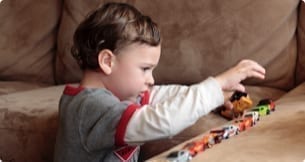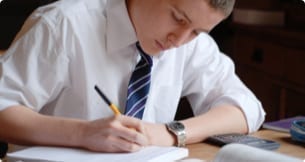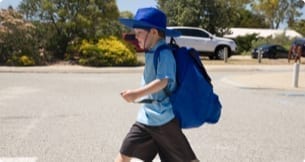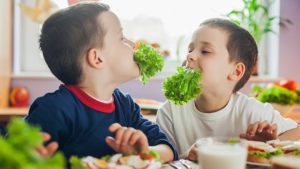
What We Can Support With
We embrace the diversity of children, acknowledging that each one faces a unique developmental journey. Our compassionate support extends to a wide range of challenges, including handwriting, social interactions and forming friendships, self-organization, and sensitivities to certain foods. We are also experienced in providing long-term support for disabilities and neurodiversity such as Autism Spectrum Disorders, Down Syndrome and Cerebral Palsy.
Below, we've outlined some of the ways we work to help every child thrive. We invite you to connect with our dedicated team to learn more about how we can tailor our assistance to meet the specific and individual needs of your child, ensuring their growth and well-being.
Contact our teamQuick links
Gross Motor Skills

Gross motor skills involve the large muscles of the body that enable activities such as walking, jumping and sports activities. A person’s gross motor skills depend on their muscle tone and strength.
We can help your child develop their gross motor skills by:- teaching them how to jump, hop, skip and balance
- catch and throw a ball
- develop their core strength
- learn how to coordinate both sides of their body (e.g. star jumps)
- improving their body awareness so they bump and trip into things less
Fine Motor Skills

Fine motor skills involve the small muscles of the body that enable functions like writing, cutting, manipulating small objects and performing personal care tasks. Fine motor skills involve fine motor control, dexterity and strength.
We can help your child develop their fine motor skills by helping them:- hold a pencil correctly with a functional pencil grasp
- develop a dominant hand
- learn how to hold scissors and cut with ease
- develop their hand and finger strength
Handwriting Skills

- developing a functional pencil grip
- forming letters and numbers correctly (no reversals)
- keeping their writing on the line (rather than all over the page!)
- improve the legibility of their writing
- use less strain upon their hand and body to write
- improve their writing speed
- organise their ideas
- getting ideas onto paper
Independence and
Self-Care Skills

As children grow up, it’s expected that they are increasingly able to look after themselves. We can help children develop independence with:
- doing up buttons and zippers
- tying their shoelaces
- using cutlery correctly
- organising themselves for school
- packing their own bag
Sensory Processing


Our brains receive lots of information about the world around us and about our bodies. Sensory processing is when our brain processes and interprets this sensory information. It allows us to move, behave and respond in the correct way for the situation or to do any task.
Sensory processing disorder is when a child’s sensory signals are not organised into appropriate responses; as a result a child’s daily activities or routines are disrupted.
We can help children who may display:- a heightened response to touch, movement, sound and some foods
- aggressive or impulsive behaviours when overwhelmed with sensory stimuli
- lots of crashing, bumping, jumping and rough housing behaviour
- licking, sucking or chewing on non-food items such as pencils, hair and clothes
- clumsy and awkward movements
- difficulty eating a wide range of foods
- poor sleep patterns
- difficulty with transitions and unexpected changes
- poor attention and emotional regulation


Social Skills and
Self-Regulation